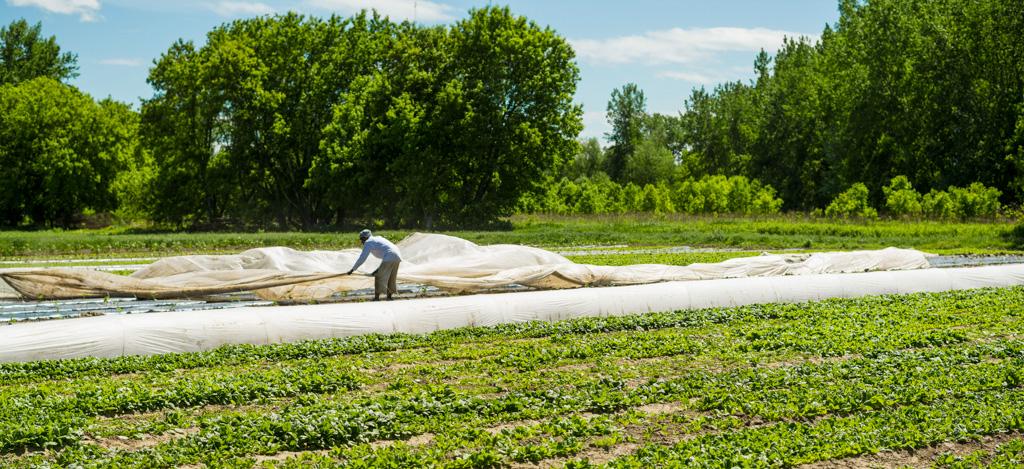Nearly 100 educators, school nutrition staff, administrators, farmers, and regional Farm to School organizations recently gathered at Shelburne Farms to kick off the 8th annual Farm to School Institute, the cornerstone professional development program of our partnership project with Shelburne Farms, Vermont FEED. The year-long Institute started with a three-day intensive focused on building deep connections between classrooms, cafeterias, and communities.
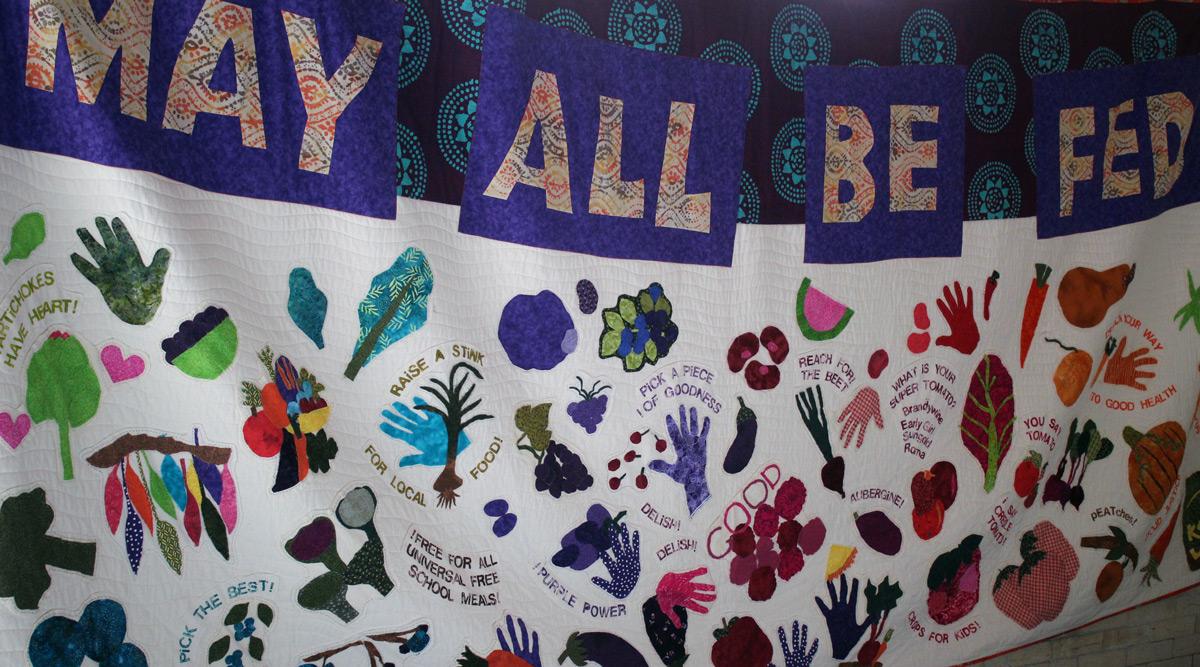
I sat down individually with each member of an interdisciplinary team from Lamoille County, to hear their thoughts on the Institute. Here is what they they told me.
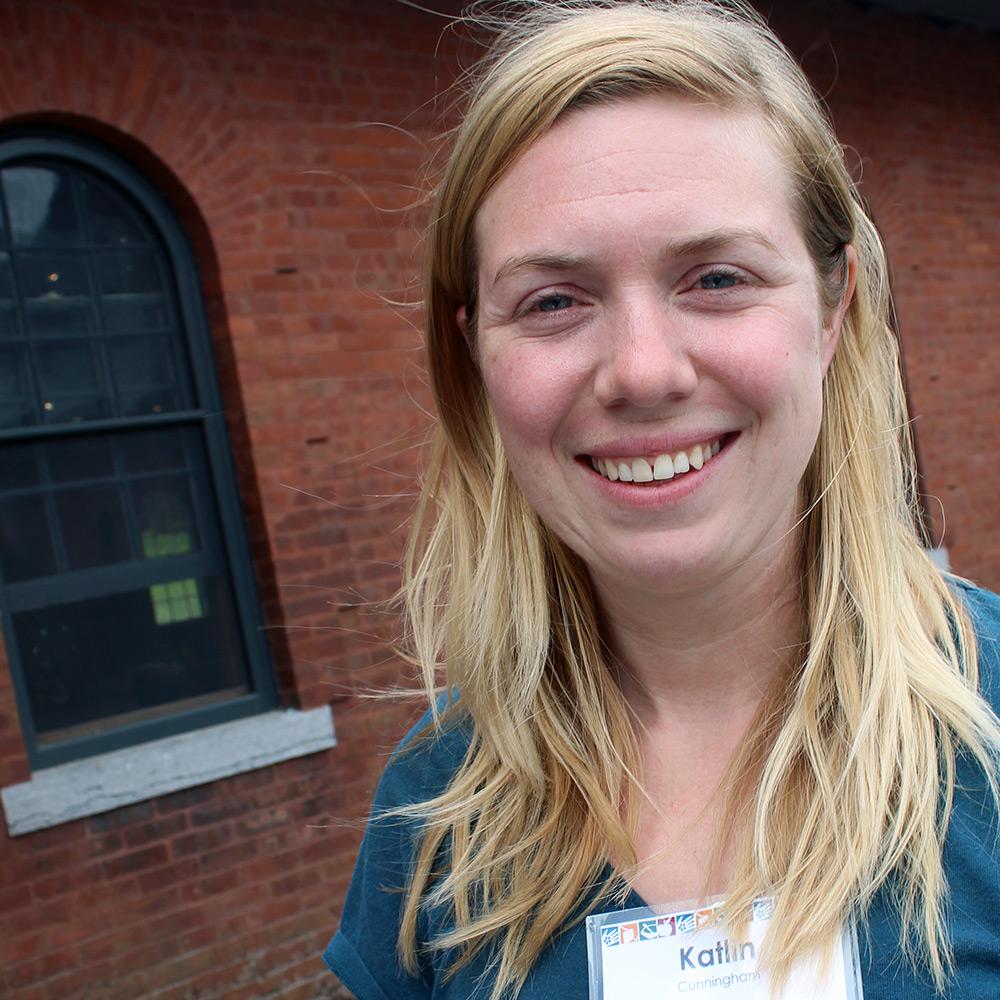
Katlin Cunningham ~
1st grade Teacher, Eden Central School
How did you become involved in the institute? What brought you here?
I’ve known Karyl for years, she is the new food service coordinator in our district. I’m very interested in nutrition and health, and have been thinking about farm to school, gardening, mindfulness, and healthy lifestyles for a long time. Karyl asked if I’d be part of the team, and I didn’t have to think about it, I said yes right away.
What so far has stood out to you as really important, or exciting? Any “aha” moments?
Our team is already really far along, it’s so exciting. The program implementation is going to be really smooth, I think. Also, it’s nice to see schools from all over the region, here in Vermont. It’s exciting to see that farm to school is a growing national trend.
What are you hoping to learn, or get out of the institute?
I’m hoping that I’ll see my first graders trying new fruits and vegetables, and then, hopefully, taking them home to share with their families. I want to expand their ideas about food, make them more open about food. I want them to let go of some of their insecurities.
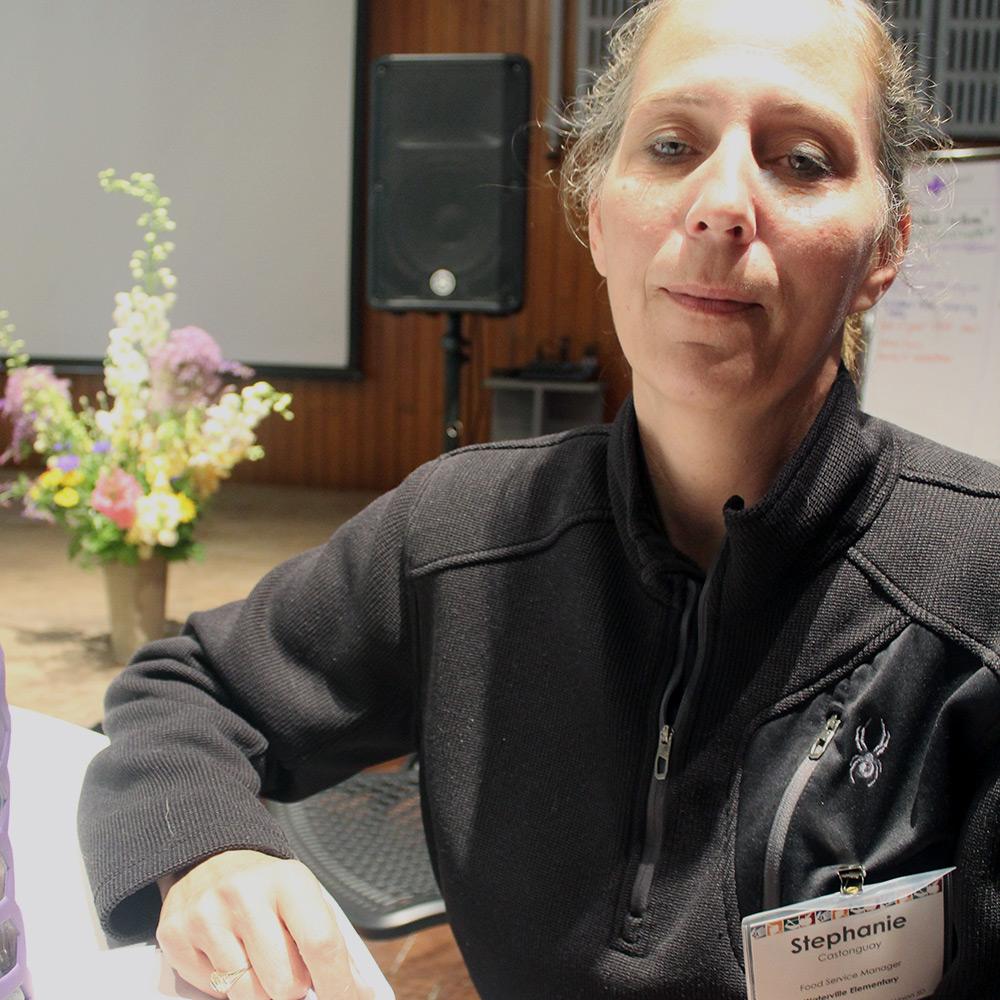
Stephanie Castonguay ~
Food Service Manager, Waterville Elementary
How did you become involved in the institute? What brought you here?
I have a garden at the school, and I also run the afterschool program. It was a lot of work, and I couldn’t do it all by myself. Karyl was in charge of the initiative to bring our district to the Institute. She invited me in.
What so far has stood out to you as really important, or exciting? Any “aha” moments?
I’ve always been aware of the realities of farm to school projects…at times it’s seemed too difficult to get things done. Now I’ve learned that it’s about education, and the whole process of education people to eat local. The meaning of farm to school is becoming clearer to me: it’s not just going to the farm, picking the food, and eating it.
What are you hoping to learn, or get out of the institute?
My main goal is to get more local foods on the menu. As a team, we need to identify what we consider local. For instance, what about Chobani’s Yogurt, which is from New York? Or Wymans Blueberries, which is from Maine?
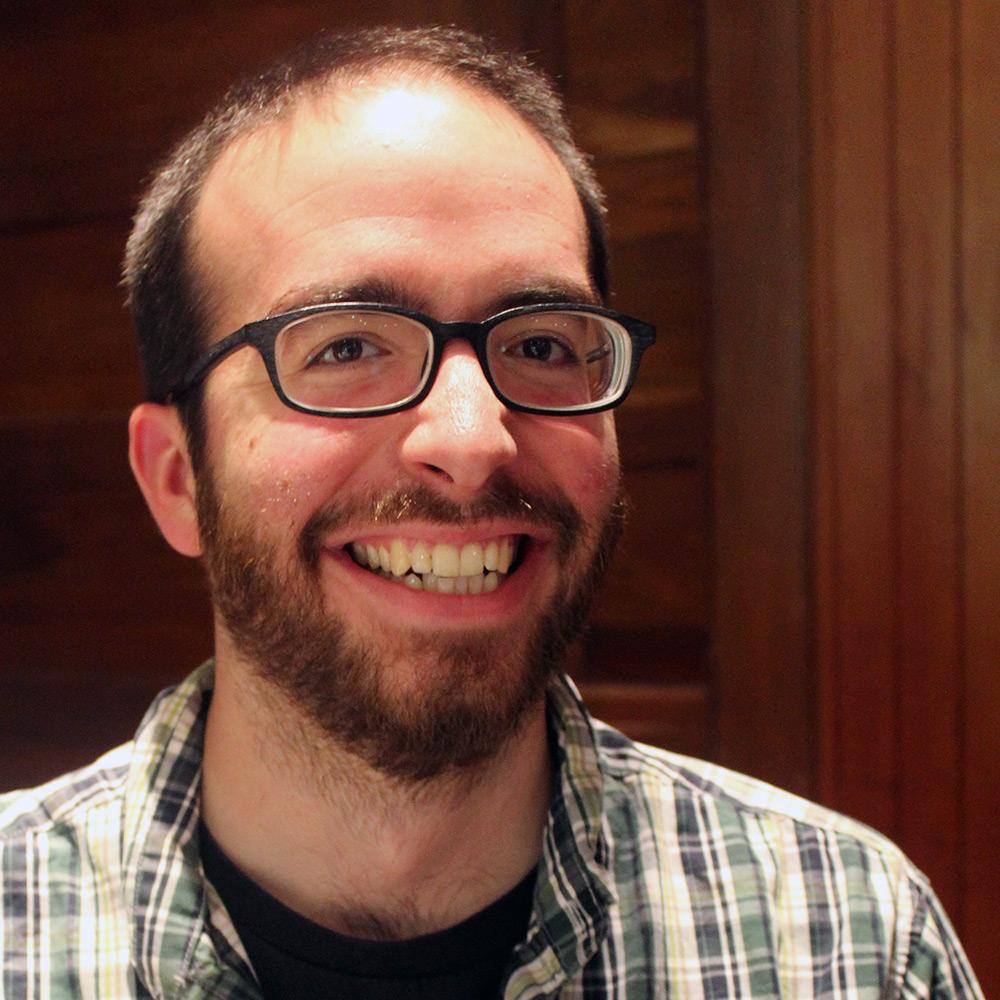
Patrick LaClair ~
Latin Teacher, Lamoille Union HS & MS
How did you become involved in the institute? What brought you here?
There’s a lot of interest at the Tech Center, in Hyde Park. We applied for a grant from the Agency of Ag, last year. Through that, we got into Abbie’s orbit (editor’s note: he’s referring to Abbie Nelson, director of food education programs at NOFA-VT). She encouraged us to apply to the institute.
What so far has stood out to you as really important, or exciting? Any “aha” moments?
It’s really important to get a team of people together, people who are loosely connected with a common cause, when you work in a geographically large district. We’ve been able to spend time together, and have the good conversations. I’ve learned a lot in the breakout groups, for instance yesterday, in a workshop on coordination, how to bring people into the farm-to-school effort. Also, I value the emphasis on sustainability and staying power…how to turn the momentum into something perpetuates. Mark Bittman said, food effects everything and vice versa. I want to make school relevant for my students, and farm to school is a great way to make connections for all students. It’s interdisciplinary.
What are you hoping to learn, or get out of the institute?
I have two different types of goals: the Monday, and the someday. The Monday is: what can I do right away, what can I bring back and implement in my classroom? What can we drop in, that’s not reliant on a great deal of buy-in or commitment from other people? Those are tangible things, like taking a professional development class, or introducing a new recipe. The someday is: bringing home the spirit of the institute, bringing together a team, having a broad vision for our program, having staying power, and creating sustainability for the program.
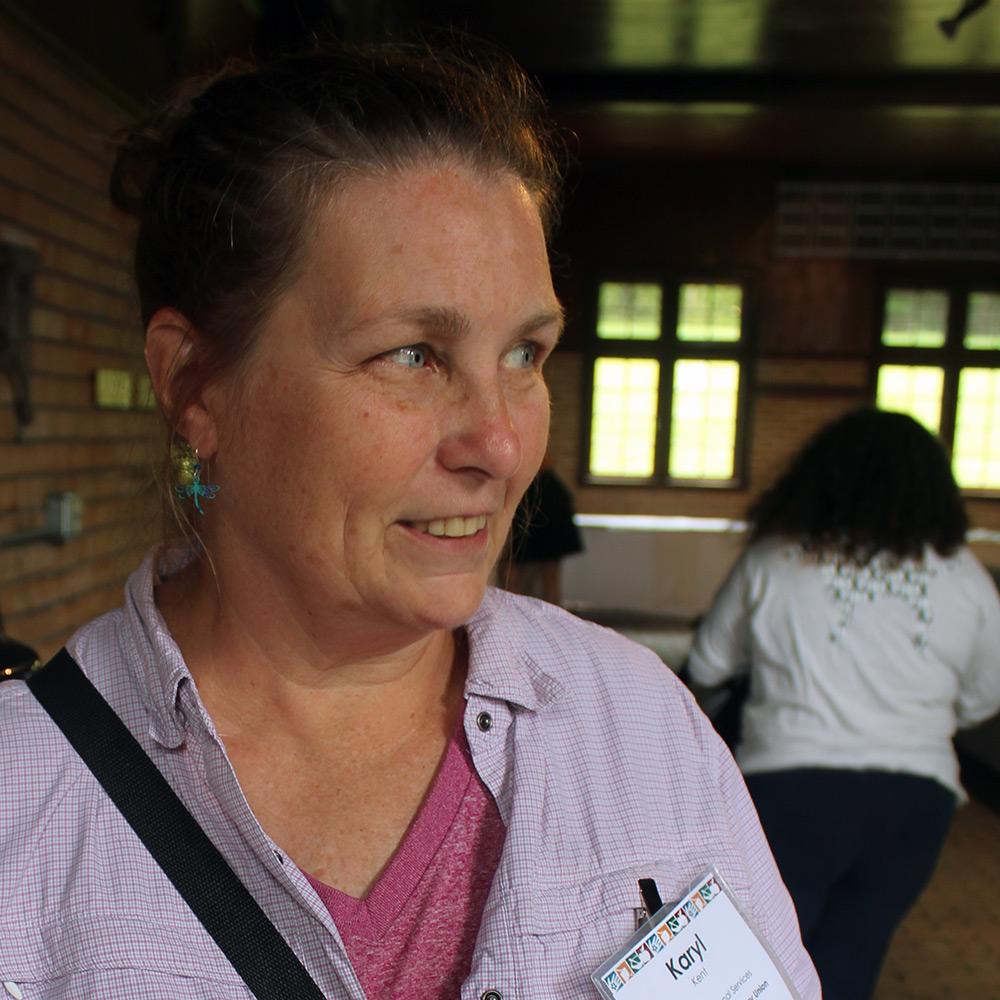
Karyl Kent ~
Director of Nutritional Services, LNSU
How did you become involved in the institute? What brought you here?
This is my 4th time coming, I’ve attended once with Richmond Elementary, once with Essex. I’ve been working on farm to school programs for 10 years.
What so far has stood out to you as really important, or exciting? Any “aha” moments?
My big “Aha” was in communicating farm-to-school to the community. I’ve worked in Richmond, and I lived there also. In Lamoille, I need to take the time to really get to know the community in order to be an effective communicator. It takes a lot of time to do effective outreach. I have to know my audience well, in order to convey the message…rather than just sending home flyers, or jumping on Facebook. What’s needed is a deeper understanding the people and places.
What are you hoping to learn, or get out of the institute?
We are becoming a strong team…we are really gelling. I hope we’ll have a clear vision and understanding of our values.
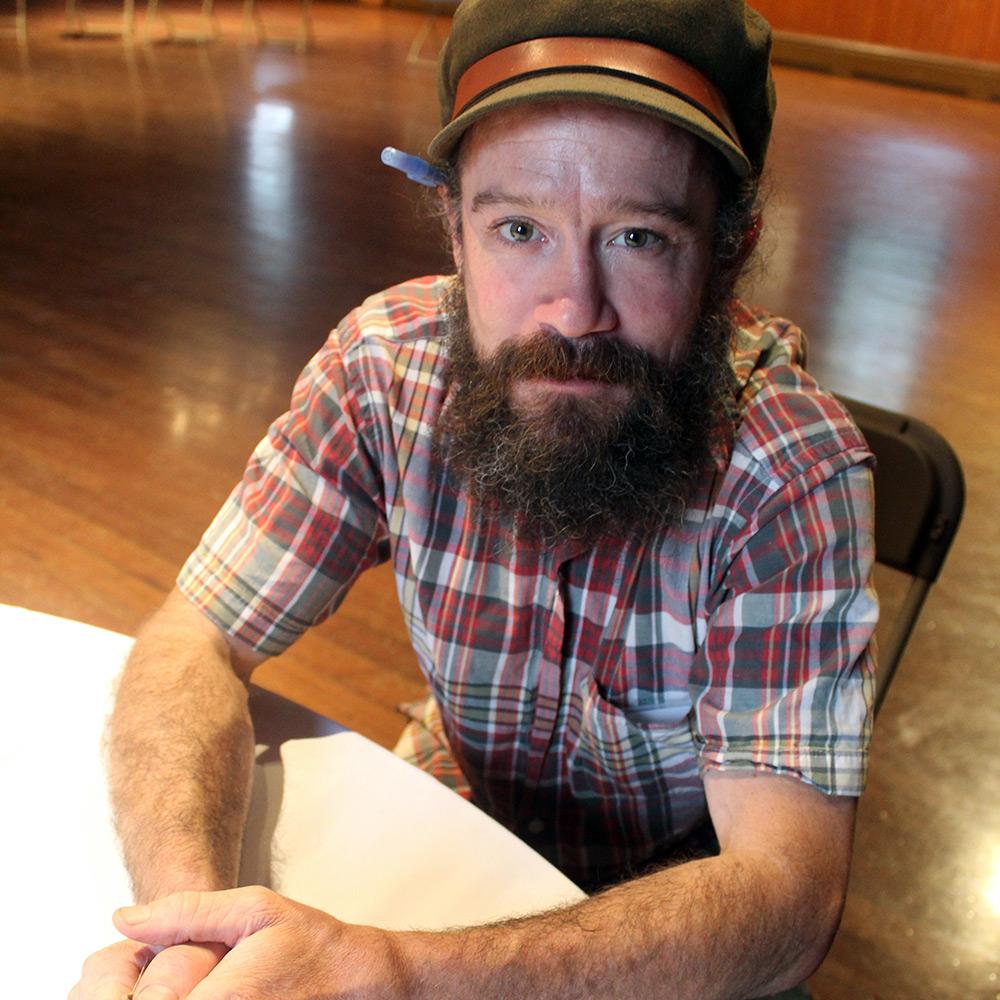
Nathan Young ~
Food service, Lamoille Union HS & MS
How did you become involved in the institute? What brought you here?
As a cook, I’m trying to institute farm-to-school—to have fresh vegetables and fruits for the kids—and get away from the heavily processed foods. I’m trying to change the menu from frozen, processed foods to improve nutrition for the kids. I was told about the institute, and asked if I was interested. I’d like to bring new ideas back to the school kitchen.
What so far has stood out to you as really important, or exciting? Any “aha” moments?
I’ve learned a lot about pricing… for instance, challenges around keeping at $1.25/meal. It is so difficult to make a wholesome menu within the cost restrictions.
What are you hoping to learn, or get out of the institute?
I want resources to implement more local and healthy food in the school. Also, I’ve made a lot of contacts, it’s wonderful to have all these new resources.
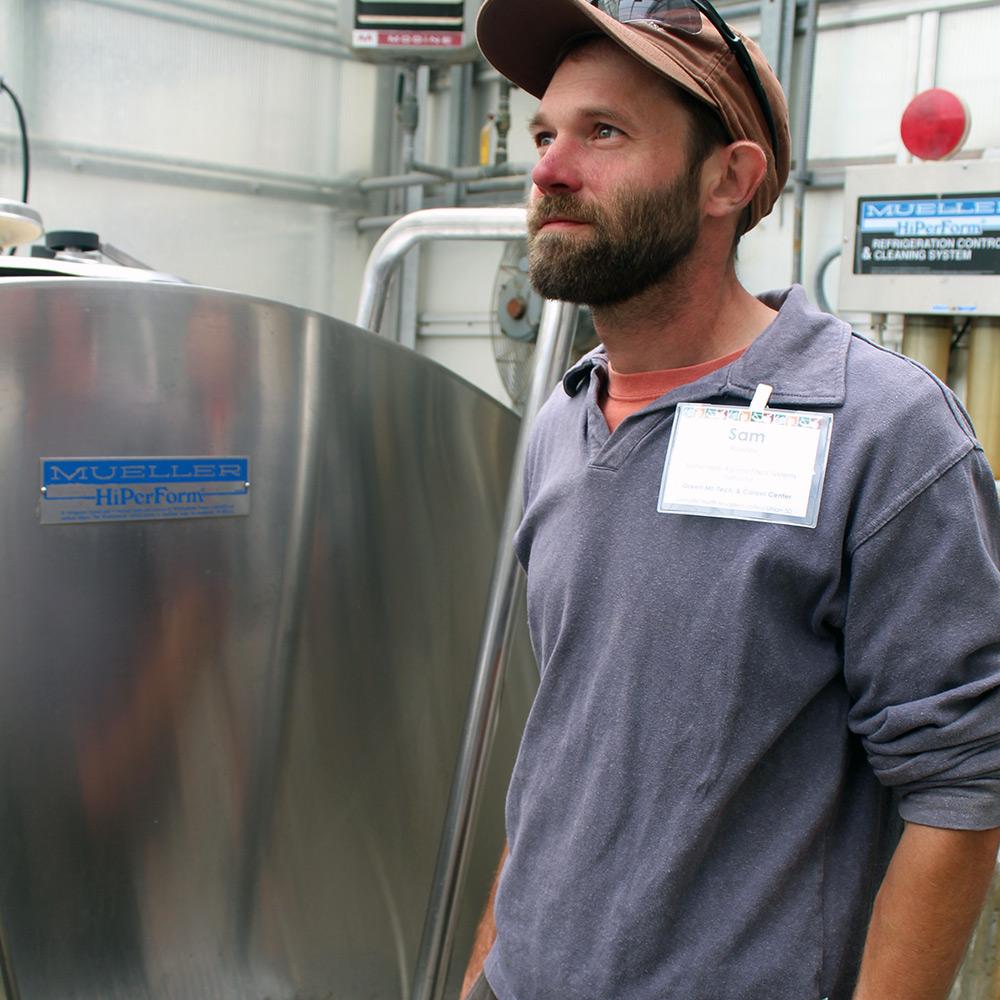
Sam Rowley ~
Sustainable Ag & Food Systems Instructor, Green Mountain Tech & Career Center
How did you become involved in the institute? What brought you here?
Karyl invited me…she really encouraged me to come to this. I run the sustainable ag program with students, and I’m always asking Karyl how I can more effectively get my food into the cafeteria. Whether its pork or onions or other foods, I want those foods to be served to the students.
What so far has stood out to you as really important, or exciting? Any “aha” moments?
We are making some really good progress to implement some of the things we’ve been talking about, for a long time. Our team is really great, they come from all different grade levels, and schools, and disciplines. This is an opportunity to work with these different people…it’s an amazing collaboration.
What are you hoping to learn, or get out of the institute?
I want to make connections in my district, and my region. Also, I want to pick up specific activities, lessons, to bring into my teaching. I might also learn about potential funding sources.

